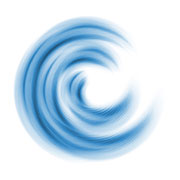 A writer friend recently sent me an e‑mail. “What are you doing?”
A writer friend recently sent me an e‑mail. “What are you doing?”
I said, “Pushing the alphabet keys. You?”
She replied, “Working the delete key!”
I suspect that the most important aspect of writing is what’s not on the page. The white space. What you take out. Leave out. Cut. An editor once told me it’s much better to over- write, than under-write. Better to cut than to add, so you have only what is necessary. I once heard a lecture by Donald Hall, poet, picture book writer, a former US poet-laureate. If I remember his words correctly, he said, “The good writer tries to create the perfect O. But he leaves a gap, so that it’s like the letter C. If that gap is too large, your reader cannot fill it. If it’s too small, there is no reason for the reader to fill it. But if it is just right, your reader fills it with his/her own experience and the circle is complete.”
Want to study writing? Take three courses.
1. A journalism course will teach you what to put in.
2. A poetry course will teach you what to take out.
3. A voice class will teach you to hear if your words sing.
3 thoughts on “What you leave out”
I love the suggestion of taking the three different kinds of courses to learn writing. Especially now, when so many writers are encouraged or desire to blog. Is a blog just an online diary or is it a form of journalism? Just sampling a few different blogs will show what a wide range of styles there are. I appreciate how focused and succinct your posts are–always enjoy reading them, even if I don’t comment.
Thank you!
avi
I enjoyed this post as well. I just received some edits from a friend–tough edits (that will make a better book), so I’m finding myself staring at things on my desk. I think one more day of letting his comments filter through my brain, then the fixes that are collecting in my head will start to make it onto the screen. Until then it’s nice to read useful blog posts such as this. I love to read poetry so your #2 resonated with me. I think a scene has to capture a mood in a way that a poet does in a poem. At some point I read a poet who said a poem was capturing how one person feels (or what it’s like to be them) at one particular moment on earth. Or Billy Collins says it’s trying to capture a feeling there isn’t a word for in the dictionary. Isn’t that what a good scene does?